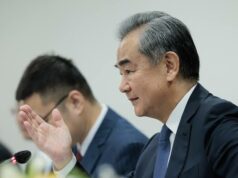International Trade Policy :
Unilateralism —Bilateralism—Multilateralism
By
Colonel Awadhesh Kumar, Special Forces
India is already the world’s third largest economy in PPP terns, which by far is the best indicator of economic worth. The Indian Prime Minister Narendra Modi and his government is determined to make the Indian economy a 5 trillion dollar worth in next 5 years. Aim is that just like 17th Century and before, Indian GDP must cross 25% of Worlds GDP at the earliest possible and certainly by 2040.
So as a first step, the country must take steps to protect and enlarge its manufacturing industries from fierce foreign competition. Make in India campaign of the NDA Government must get consolidated and then India must leap on to the to the international stage with designed and MADE IN INDIA products.
Whether a few countries like it or not, India is now both an rapidly emerging economy and also a rising military power in the World. So India cannot get restricted or confined by any power block old or new, She will utilize multiple sources to forge new power relationships with other emerging, established or declining powers.,Choice of action will remain with India without dictations from anyone.
In fact the existing turbulent trading relations between Washington the existing number one economy and China the existing number two economy have opened potential markets for India the third largest economy. Realizing this an alarmed USA and an anxious China have tried increasing pressure on India to ease restrictions on their companies entering the Indian market and for lowering of tariff barriers by India.
However now India is quite self confident and Modi is a natural trade expert being a Gujarati. So soon US President Donald Trump and Xi Jinping will both realize that their doctrines on trade reciprocity will be outmatched by India sooner than later. Any protectionism will be doubly reciprocated by India and any unilateralism will be just ignored or bypassed.
Ahead of the G20 summit in Japan, US Secretary of State Mike Pompeo visited New Delhi. Pompeo said that Washington would consider all policy tools to help India to meet its crude oil needs after hitting it with US sanctions on importing Iranian and Venezuelan oil. Presently India has bypassed this unilateral decision of USA by importing its needs in advance. It will open its actual cards when time comes.
India is an oil buyer and tries to diversify its sources from all over the world. The US too is an emerging energy supplier in the oil market but it cannot dictate terms to a buyer like India. This simple fact may take a bit of time to sink in though this has made India-US trading relations much more complicated. Any attempts at forcing India to buy more gas and oil from the US or its allies will not be tolerated by the Indian government.
It is our policy to deepen bilateral strategic cooperation with the US, but firstly it cannot be at the cost of our bilateral relations with others ….Russia, France,Israel, Japan,or China. Secondly economic issues cannot be delinked from strategic cooperation. Thirdly if USA can have relations with Pakistan then India too cannot abandon Iran. India is ready to engage in strategic cooperation with the US on basis of equality. Similarly trade agreements will have to be negotiated based on economics.
As far as India-China trade relations go, India will again go for proper negotiations for mutual benefit and will not permit one way dumping etc in name of free and open trade or competitions. India doesn’t have any bilateral or multilateral free trade agreement with China like it has with other countries or trading blocks. Presently India has huge trade deficit with China and this needs to be reduced by import of more Indian goods by China. Once it gets balanced out then India and China can work together to safeguard multilateralism. Their trading volume is expected to exceed $100 billion very soon.



